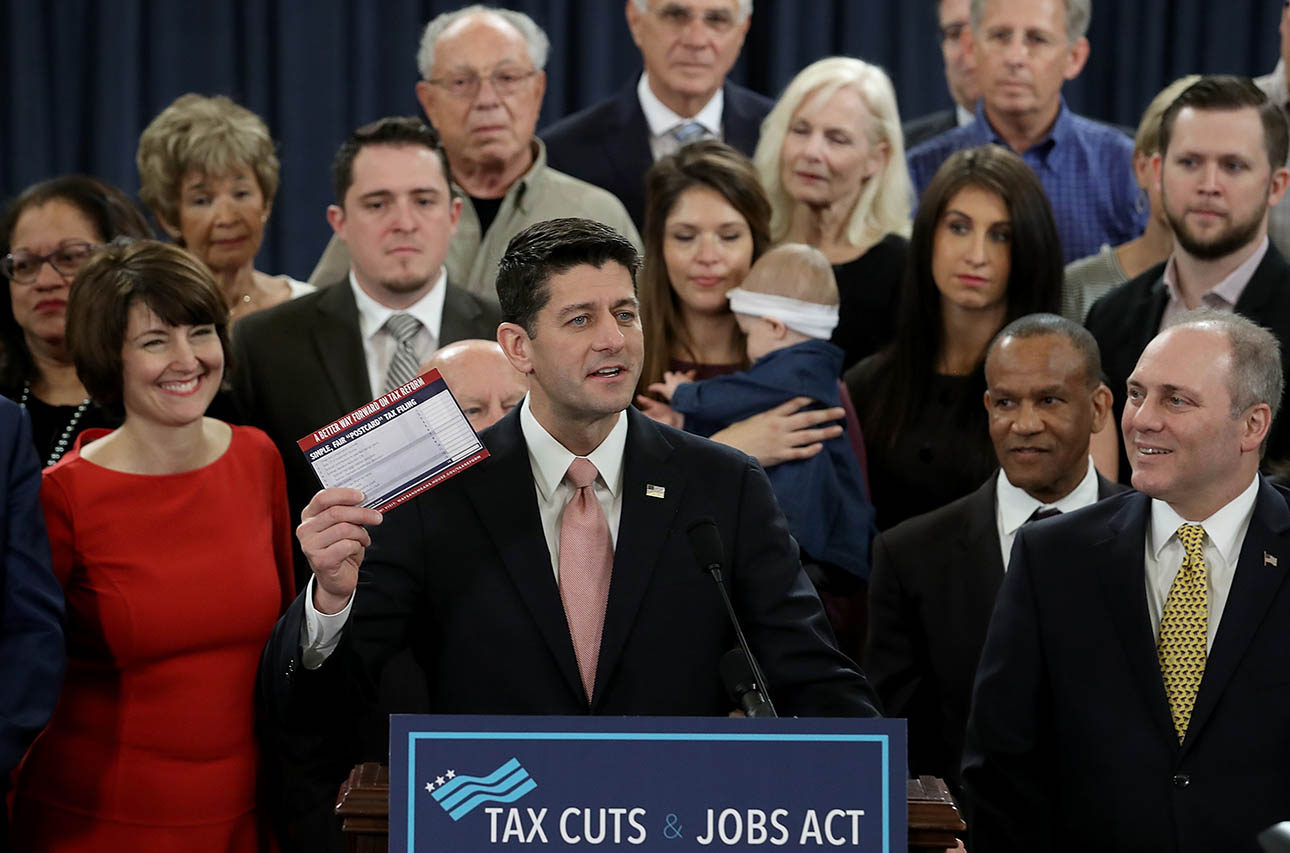The House Republican tax plan is intended to increase economic growth, provide tax relief, and achieve simplification. It modestly achieves all three.
The most important pro-growth provisions would reduce the statutory corporate income tax rate from 35 percent – the highest rate in the developed world – down to a 20 percent rate that is in line with our trading partners. It would also join the rest of the world by adopting a territorial tax regime that should end the exporting of jobs and investment overseas.
Unfortunately, the plan limits its pro-growth benefits by adding a five-year expiration date to the vital provision allowing businesses to immediately deduct the full cost of new investments. Businesses will not make long-term investments based on temporary tax provisions, so this will merely shift future investment forward, rather than add to total investment. A better policy would allow permanent, immediate business expensing, and pay for it by phasing in the corporate tax rate cut over five years to catch the eventual profits from these new investments.
On the second goal, the bill seems to provide across-the-board tax relief. Lower- and middle-income families will almost surely come out ahead. Nearly doubling the standard deduction more than compensates for raising the next marginal tax rate from 10 percent to 12 percent. And replacing the personal exemptions with an expanded child credit will benefit families with children. The loss of student loan interest and other deductions will matter to some, but overall lower- and middle-income families should do well.
On the final goal, the tax bill achieves modest simplification. A few dozen tax preferences would be eliminated, and doubling the standard deduction will make it easier for many families to file their 1040s. However, complicated rules on a new small business tax rate and business interest deductions, a claw back on tax rate cuts for upper-income families, and the retention of many tax preferences will limit this simplification.
In the short-term, a key question is whether lawmakers can keep this cost within the $1.5 trillion cap set in the budget (or better yet come below in the cap), and avoid adding to the cost as the bill moves through Congress. In the long-term, the most important tax question is whether lawmakers will reform the Social Security and Medicare costs that are driving a $78 trillion budget deficit over the next 30 years – and which threaten to overwhelm any tax cuts enacted in 2017.
MI Responds features real-time commentary from MI scholars on breaking news and developing issues.
______________________
Brian M. Riedl is a senior fellow at the Manhattan Institute. Previously, he worked for six years as chief economist to Senator Rob Portman (R-OH) and as staff director of the Senate Finance Subcommittee on Fiscal Responsibility and Economic Growth. Follow him on Twitter here.
